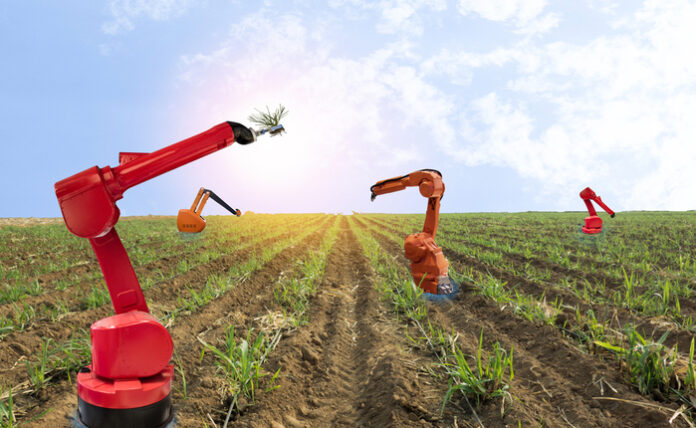Robotics in agriculture has been an evolving industry for a while, but now we’re getting new reports of one company’s application to robotic herbicide operations.
Taylor Soper at GeekWire reports Carbon Robotics, a company founded just a few years ago in 2018, is innovating weed killing with a zapping machine that uses artificial intelligence to distinguish unwanted plants from crops.
The company reportedly obtained $27 million in funding, and has $20 million in preorders for its machinery. Carbon robotics has 20 employees, but wants to triple that number within a year and a half, according to BB’s coverage.
“It’s definitely been the most fun I’ve had,” Carbon Robotics top dog Paul Mikesell, formerly of Isilon, told GeekWire. “I really wanted to do something fundamental. Growing food is one of the most important activities that humans do.”
Not to be outdone, a much smaller robotics firm called, aptly, Small Robot Company, is employing three robotic comrades, Tom, Dick, and Harry, to kill weeds and plant seeds for effective crop care.
“Small Robot says it has raised over £7 million ($9.9 million),” writes Stephanie Bailey at CNN Business. “The company hopes to launch its full system of robots by 2023, which will be offered as a service at a rate of around £400 ($568) per hectare. The monitoring robot is placed at a farm first and the weeding and planting robots delivered only when the data shows they’re needed.”
Both of these companies tout the benefits of robotic weed handling in terms of preserving soil chemistry and lowering the amount of pesticides and herbicides sprayed on crops.
“It creates a current that goes through the roots of the plant through the soil and then back up, which completely destroys the weed,” Small Robot Company CEO Ben Scott-Robinson told CNN. “We can go to each individual plant that is threatening the crop plants and take it out. It’s not as fast as it would be if you went out to spray the entire field, but you have to bear in mind we only have to go into the parts of the field where the weeds are.”
The broader utility of AI technology in agriculture is apparent. Look for the market impact of these kinds of innovations as they continue to develop at a rapid pace.










